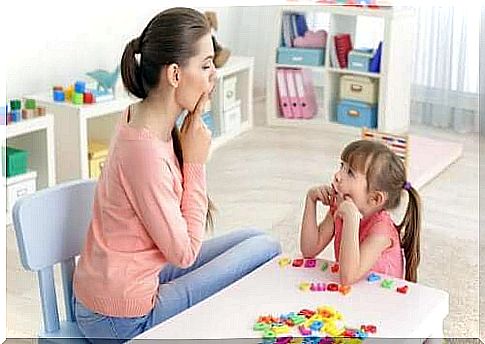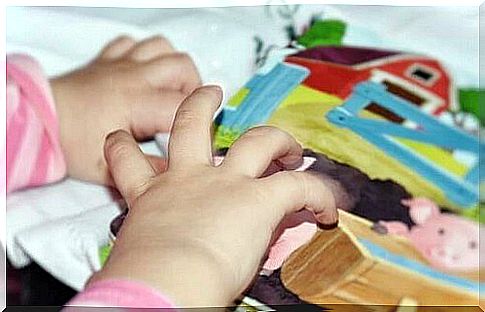6 Exercises To Help Children With Language Problems

Children with language problems should receive help from a professional and from their parents. Only in this way can they achieve good development and improve over time.
“The child cries in the classroom because his companions make fun of him. They imply because she doesn’t know how to pronounce words like cart, train or road. She feels guilty about something she shouldn’t feel : being a child who has trouble pronouncing some words well”.
Do not allow this situation to repeat itself with a child close to you. Read our tips and help her fix this common childhood problem. It is important to highlight that, in the case of a child, a delay in language does not necessarily mean a problem in other areas of their development.
The fact that a child may have difficulty speaking does not mean that he is incapable or less intelligent. Furthermore, it is very likely that such language problems only present themselves in childhood.
Even though it’s hard to believe, teenagers and adults with an excellent form of speech may have had speech disorders when they were young, which hasn’t stopped them from developing and reaching adulthood with completely normal speech.
What exercises can help children with language problems?
1. Cards

The cards that refer to the sounds are of great help for children to learn to correctly pronounce each syllable. It is best to turn this exercise into a game and reward the child when he pronounces each sound correctly.
2. Mirror exercises
Mirror exercises are very useful for children who have difficulty pronouncing words and sounds. The mirror serves to teach them how to correctly perform the movement of the mouth and the sound that accompanies each word.
3. Repetitions
Repeating words over and over again is among the most effective exercises to help children with language problems. Each repetition should be performed slowly. This way, the child will be able to hear and know all the phonemes.
4. Talking to children

Parents and other family members should communicate frequently with children who have a language delay. Thus, verbal communication is provided, providing the child with the opportunity to hear new words, learn them, and be able to communicate correctly.
5. Enhance speech
To enhance speech in young children, it is ideal to give them what they ask for only if they say the right word, and not if they only use hand gestures. This motivates the child to look for ways to use language and get what he wants.
6. Read

Reading is an adequate resource to enhance children’s language, since through reading they acquire a new vocabulary, as stated in a study carried out by the Fundação Educacional Arauco, in Chile.
With reading, they learn to structure sentences better and pronounce more complicated words. Stories, for example, also help to stimulate creativity and imagination.
How are language disorders diagnosed?
One of the biggest challenges parents face is identifying whether their children have difficulties with language and whether they need the help of an expert, as a study by the National Autonomous University of Mexico points out. However, it is important to highlight that each child has its own variations in speech development.
Some of the situations that can help identify if a child has language problems are:
- If, at 18 months of age, the child has not said a word, does not point to objects and does not show any interest or intention to communicate.
- He is 18 months old and does not understand simple orders of no more than three words.
- At 2 years old, she only repeats what she hears and it is not possible to understand anything she says.
- At 3 years of age, he does not build plurals or use pronouns.
- He reaches the age of 4, mispronouncing consonants, presenting nasal sounds and not conjugating verbs through speech.
Recommendations for parents of children with language problems
Parents should know that children learn language by imitation, listening to the people around them. For this reason, we must talk to them a lot, in simple and clear language to understand.
During the breastfeeding phase, it is important to devote time to verbal communication with children, teaching signs and imitating sounds and gestures. Likewise, from 6 months of age onwards, we should read to the child every day.
Tales with pictures are ideal for stimulating language development. Take advantage of a bath or change of clothes to reinforce your speech and language. These are ideal situations for naming objects, clothes and other parts of the body.
Parents and other people around the child should not laugh at the mistakes he may make. Teasing can cause great psycho-emotional harm in children with language problems.









